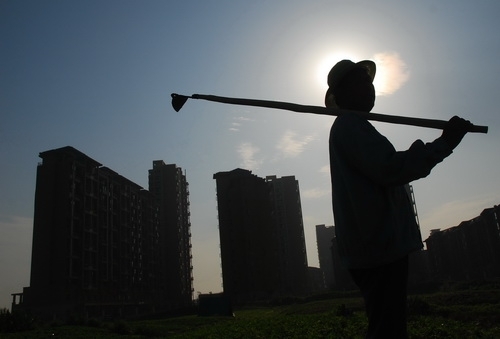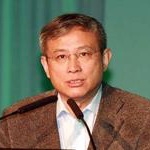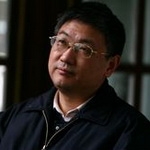


By Zhou Qiren (周其仁)
Observer, page 49
Issue No.529, Jul 25, 2011
Translated by Yang Ziman
Original article: [Chinese]
In June, 2007, Chengdu received permission from the State Council to go ahead with a land reform pilot project which would allow farmers to sell and mortgage their land. The capital of the southwestern province of Sichuan had been advocating for the reform since 2003.
For the past thirty years, Chinese farmers have been tied to their land on condition that it only be used to grow crops or to build houses for their own use. The land could not increase in value because it was prohibited from being sold according to its market value. Once farmers have the right to sell their land freely, they can decide whether they want to work the land themselves or use the money they can get from selling or mortgaging the land to enter a more profitable line of business.

Zhou Qiren (周其仁), a professor with Peking University, led an investigation into Chengdu’s land reforms in 2008 and his team published a report《还权赋能--成都土地制度改革探索的调查研究》in 2010. He argues that the land reforms have provided valuable working knowledge of how to make full use of land resources in rural areas.

He Xuefeng (贺雪峰), a professor with Huazhong University of Science and Technology, published a book called The Logic of Land Rights - Whither China’s Rural Land System?《地权的逻辑--中国农村土地制度向何处去》on the outlook for China’s rural land system at the end of 2010. One chapter in his book was dedicated to criticizing Chengdu’s reform. He argued that farmers would lose their land once they were allowed to sell it and thus lose the guarantee of their livelihood.
Zhou Qiren casts doubt on He Xuefeng’s conclusion. Zhou says He’s argument lacks first-hand evidence. Professor He wrote the 54-page chapter after visiting three villages where land reform had been carried out on the invitation of Chengdu’s Municipal Party Committee. But he did not specify important details such as when he visited, which three villages he went, how long he took to conduct his investigations, or whom he talked to while he was there.
Zhou writes of his surprise that He could reach any conclusion when he doesn’t appear to have collected enough evidence. Zhou also argued that academic research should strictly follow the procedure of discovering a problem, proposing a hypothesis, and testing the strength of that hypothesis based on real evidence. Zhou says he couldn’t find enough evidence to support He’s criticism of the Chengdu land reforms.
Zhou argued that He’s conclusion that Chengdu’s reforms are unlike to succeed lacks logic. Professor He, quoted a news report that the mayor of Chengdu was determined to transform four million farmers into officially-registered urban residents. These farmers would be able to sell 100 million mu of land. With such a big supply of land, He presumes it would be impossible for the price to reach a price of 1 million yuan per mu, a figure that the city government had previously floated. Therefore, according to He, Chengdu’s attempt to increase the income of farmers would be nothing but a fanciful illusion.
However, Zhou argues that it is a fallacy to assume that all farmers would be interested in selling their land as soon as they are awarded the right to. In fact, he said, market prices change according to demand and supply and that farmers can judge for themselves whether it is profitable to sell their land.
Zhou also listed land prices in rural areas in Chengdu gleaned from his research into the land reform to counter He’s argument that land reform would result in falling land prices. Zhou said that the transfer price for usage rights of rural land in Chengdu averaged over 150,000 yuan per mu and in one village, farmers transferred the right to use their land for 420,000 yuan per mu, as part of a 130 million yuan contract. Zhou offered this as evidence as proof that the land reforms unlocked a “considerable pool of wealth”. Zhou concluded by arguing that if land resources can be allocated into the hands of those best equipped to use them to their full potential, whether it is the government, investors, rural collectives or individual farmers, then new sources of growth will emerge.
The article was edited by Paul Pennay

